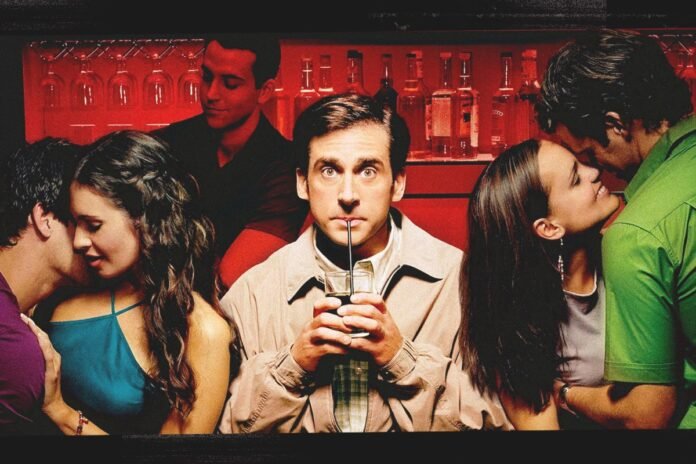The Rise of Virginity in Reality TV: A Cultural Exploration
These days, reality television has become a sprawling landscape, showcasing an array of unique subcultures. From Mormon housewives and hoarders to weight-loss journeys and luxury yacht crews, it seems there’s a show for every niche imaginable. Recently, a new group has captured the spotlight: virgins. This trend raises intriguing questions about societal perceptions of virginity and the motivations behind our fascination with these narratives.
The Emergence of Virgin-Centric Shows
The phenomenon began in June with TLC’s Virgins, which followed four adults in their 30s and 40s as they navigated the often awkward terrain of dating while still holding onto their virginity. Despite their earnest attempts, none of the participants managed to lose their virginity by the season’s end, leaving viewers with a mix of curiosity and sympathy.
Following this, Hulu introduced Are You My First?, a dating show reminiscent of Love Island, featuring a cast entirely composed of virgins. Hosted by Colton Underwood, a former Bachelor known for his own virginity, the show aims to explore the dynamics of dating among those who have chosen to wait. Additionally, Hulu released Summer of 69, a comedy about a sexually inexperienced high schooler seeking guidance from a stripper. Coincidentally, this year marks the 20th anniversary of The 40-Year-Old Virgin, a film that humorously tackled the topic of adult virginity, further fueling the current trend.
The Cultural Context of Virginity
The surge in virgin-centric programming prompts a deeper examination of our cultural obsession with virginity. Historically, virginity has been a loaded concept, often tied to notions of purity, morality, and societal expectations. In contemporary media, these themes are frequently explored through the lens of humor, awkwardness, and, at times, exploitation.
TLC’s Virgins exemplifies this exploitative angle. The cast includes individuals like Sonali, a 37-year-old from a strict Indian background, and Rhasha, a 42-year-old divorced virgin. Their stories often reveal underlying mental health issues, suggesting that their virginity is not merely a choice but a complex interplay of personal struggles. The show seems to thrive on shock value, encouraging participants to disclose their virginity in uncomfortable situations, which raises ethical questions about the treatment of its cast.
A Shift in Representation
In contrast, Are You My First? adopts a different approach. Its cast is primarily in their 20s, many of whom are virgins by choice, often influenced by religious or cultural beliefs. This shift in representation allows for a more nuanced exploration of virginity, as the participants are portrayed as conventionally attractive and relatable rather than pitiable.
The show cleverly taps into the current trends among younger generations, particularly Gen Z, who are reportedly having less sex than their predecessors. By featuring attractive individuals in a tropical setting, the show aims to appeal to viewers while also acknowledging the complexities of modern dating and sexual relationships.
The Heart of the Matter
Despite the lighthearted premise, Are You My First? reveals deeper themes that resonate with audiences. One contestant articulates her belief that withholding sex grants her power in relationships, drawing a parallel to historical figures like Anne Boleyn. This perspective invites viewers to consider the psychological implications of virginity and the ways it can shape personal identity and relationships.
Another participant, a bottle-service waitress, finds herself drawn to a shy nerd, highlighting the importance of emotional connection over physical intimacy. Their budding relationship, free from the pressures of sex, offers a refreshing take on romance, emphasizing the value of companionship and understanding.
The Underdog Narrative
At the core of our fascination with virginity in pop culture lies the timeless underdog narrative. We are drawn to stories of misfits striving for love, acceptance, or personal growth. Watching characters like Rhasha, the 42-year-old divorced virgin, experience joy and connection can be heartwarming, serving as a reminder that everyone has their own journey.
In a world often characterized by cynicism and complexity, the innocence portrayed in these shows offers a comforting contrast. It allows viewers to reflect on their own experiences while rooting for characters who, despite their struggles, seek genuine connection and fulfillment.
Conclusion
The rise of virginity-themed reality shows reflects a broader cultural conversation about sexuality, identity, and societal expectations. As we navigate this evolving landscape, it becomes clear that these narratives resonate with audiences on multiple levels, offering both entertainment and insight into the human experience. Whether through humor, drama, or heartfelt moments, the exploration of virginity in reality TV continues to captivate and provoke thought, inviting us to engage with our own perceptions of love, intimacy, and personal growth.

